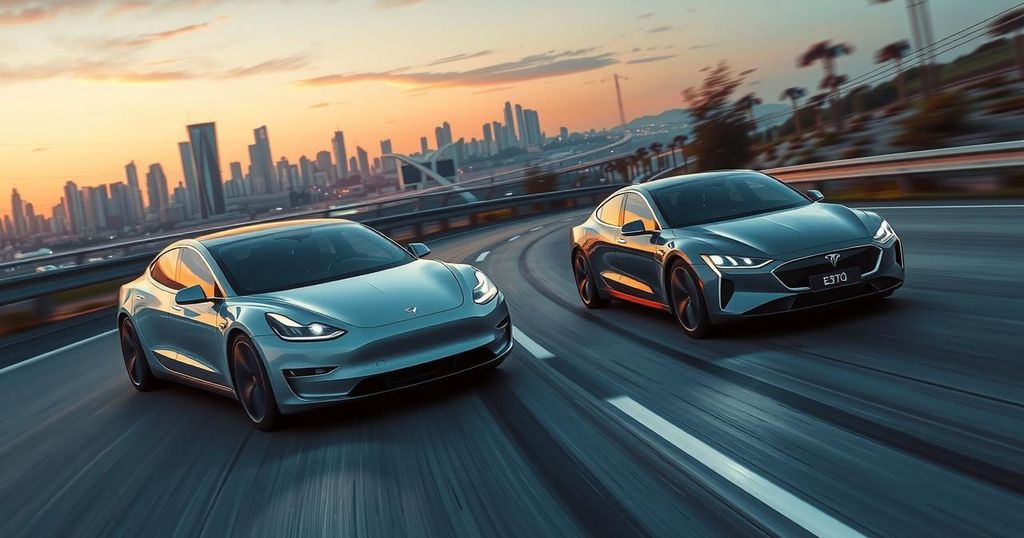Evaluating Tesla’s Position: Competing with BYD in a Shifting Market

Tesla is experiencing a sales decline in China, contrasting with BYD’s market growth. This may not solely relate to Elon Musk’s public perception but also reflects a strategic difference in business approaches. Despite recent stock fluctuations and market pressures, investor confidence in Tesla’s long-term growth potential remains strong, bolstered by its technological advancements.
Tesla’s market share in the Chinese electric vehicle market has shown signs of plateauing, with recent data indicating a significant decline in deliveries. In contrast, BYD, a prominent local competitor, has consistently increased its market share. Although some speculate that this shift is influenced by perceptions of Elon Musk, other factors may be at play, suggesting Tesla is navigating a different competitive landscape than BYD.
Recent figures from the China Passenger Car Association report a striking 49% decline in Tesla’s deliveries from the previous month, bringing shipments down to 30,688 vehicles. Comparatively, BYD continues to thrive, due in part to its wide array of electric and hybrid offerings catering to various consumer preferences, complemented by its status as a domestic brand.
Currently, Tesla’s Giga Shanghai is being retooled to launch production for the new Model Y variant, known as “Juniper.” This reconfiguration could have accounted for the recent drop in sales. However, it’s noteworthy that Tesla’s performance in markets like South Korea and the UK remains strong, challenging the notion that recent sales declines are indicative of broader issues tied to Musk’s political activities.
Despite facing significant market challenges and a recent stock price drop of 15.4%, investors remain confident in Tesla’s long-term trajectory. Notable figures like investor Ron Baron and analyst Adam Jonas express optimism regarding Tesla’s recovery potential, predicting significant stock price rebounds, illustrating that Tesla’s fiscal health extends beyond immediate sales figures.
Investor sentiment remains cautious yet optimistic, especially in light of Tesla’s innovations in sectors like robotaxis and AI technology. Despite challenges and volatility influenced by external factors, many analysts believe that Tesla retains significant growth potential that may manifest in the longer run. Consequently, comparisons with BYD may overlook broader industry dynamics in which Tesla is involved.
Tesla faces competitive pressures from BYD, particularly in the Chinese market, where its sales are declining while BYD’s flourish. While Tesla’s recent sales dip raises questions about Musk’s influence, the company’s robust performance in other markets suggests that its strategic approach may differ from that of its competitors. Investor confidence remains despite stock volatility, as the long-term potential of Tesla as a technology company is likely to outweigh short-term sales fluctuations.
Original Source: www.teslarati.com




